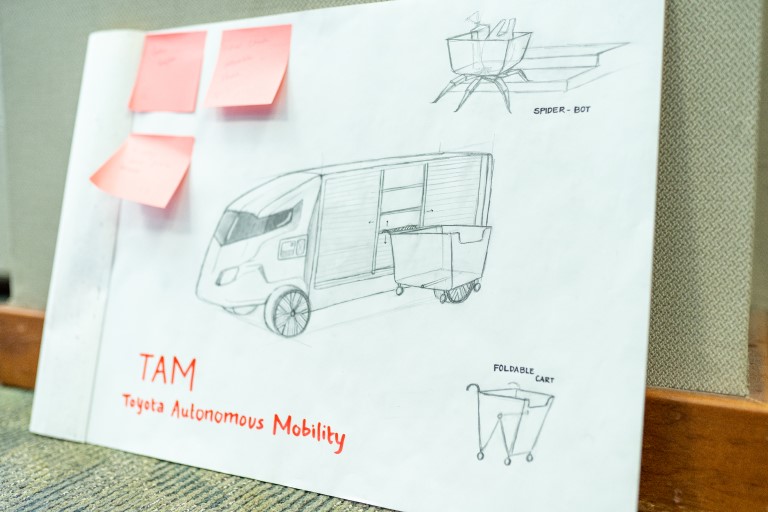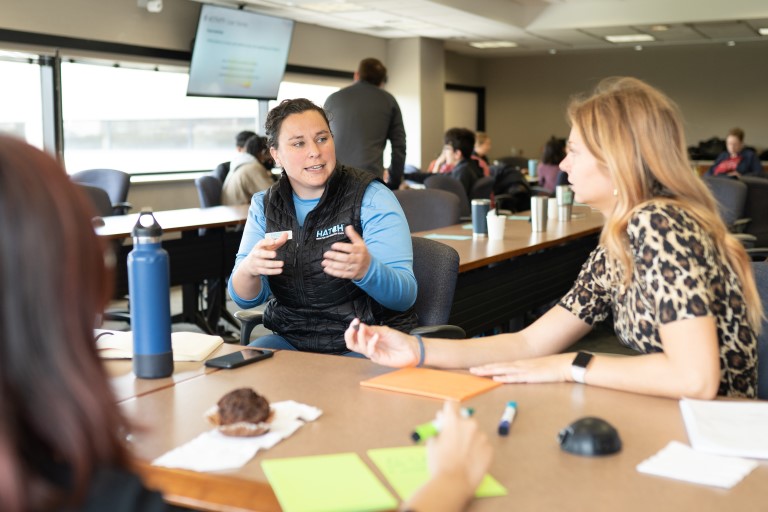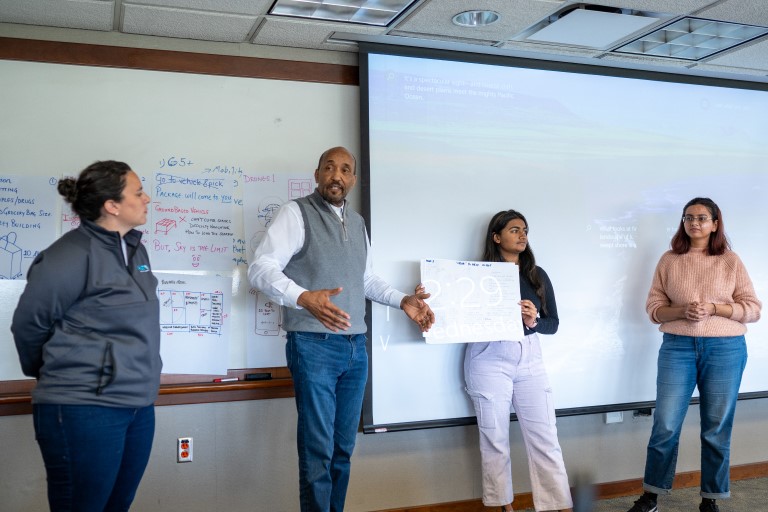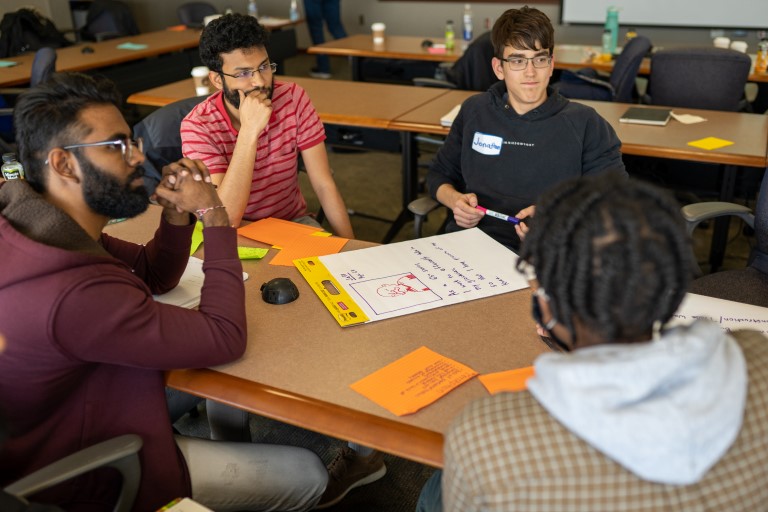Students and faculty from four IUPUI schools recently joined Indianapolis community members in a Toyota Mobility Foundation design thinking workshop to identify solutions to mobility challenges that occur during contactless delivery by autonomous vehicles. The workshop was hosted at IUPUI on April 26 and 27.
The focus of the workshop was to analyze the results of the Toyota Mobility Foundation’s User Centric Contactless Delivery Service, which is part of their “Together in Motion” efforts in Indiana that brought a free autonomous shuttle service to IUPUI in 2021.
"We were thrilled to collaborate with the Toyota Mobility Foundation on this event, which allowed our students and faculty to share their expertise on topics that align with multiple areas of IUPUI's research and values, and particularly with the work happening at the Transportation and Autonomous Systems Institute and the Initiative for Electrified and Autonomous Mobility," said Clayton Nicholas, industry research development specialist.
The Toyota Mobility Foundation's contactless delivery system program was a six-month pilot that utilized a contactless delivery vehicle to examine how driverless vehicles could distribute products to food banks and community members on Indianapolis's near east side using an app. They used a Toyota Sienna upfitted with Udelv's uPod technology – an automated cargo pod – to facilitate the goods delivery.
Over the two-day workshop organized and facilitated by the Toyota Mobility Foundation, cross-disciplinary teams of IUPUI faculty and students from the School of Engineering and Technology, the School of Informatics and Computing, Herron School of Art and Design, and the Kelley School of Business joined the community members from the Southeast Community Services and HATCH for Hunger (who moved goods as part of the pilot program) to discuss the successes of the pilot program and to identify gaps.
Each team was given a specific topic related to the contactless delivery program, such as what modifications should be made to the delivery vehicle to make it easier for people in wheelchairs to access the products or how the app would work for people with a visual impairment. They then developed solutions that were presented to the larger group, providing an opportunity for all attendees to evaluate the proposed solutions with many mobility needs in mind.
“The workshop was truly an inspirational experience in participatory design, bringing together a room full of engineers, business professionals, visual designers and academicians, who were all channeling their creativity in the problem space of autonomous and contactless delivery,” said IUPUI graduate student Aditi Aniruddha Shukla, who is studying human-computer interaction in the School of Informatics and Computing. “It was impactful in bringing varied perspectives from different backgrounds together, and in addition to witnessing the wonderful ideas that all the teams delivered, I got the opportunity to learn from my teammates about how people from different disciplines think and approach a problem space.”
The Toyota Sienna used in the east side pilot program has been returned to its original condition and has been donated to the School of Engineering and Technology at IUPUI by Udelv. Future workshops are likely and will address further mobility challenges, a topic Nicholas said is extremely important for all Hoosiers, regardless of whether they live in urban or rural areas, are financially stable or have disabilities that limit their mobility.
“Mobility is so important to everyone, with studies showing that after the age of 75 or 80, health decreases because you’re not as social as you used to be or can’t get to appointments as easily,” Nicholas said. “It’s important that we look now at who will benefit the most from driverless vehicles so that we can ensure these technologies filter down to the people who need it rather than relying on the marketplace to deliver it.”
While IUPUI has worked with the Toyota Mobility Foundation for just a few years, researchers have worked with Toyota’s Collaborative Safety Research Center for over a decade, looking at topics such as the safety of vehicle collision systems in detecting pedestrians and bicycles.







